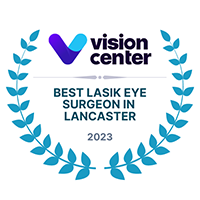Recovery is one of the necessary parts of having surgery, even for the simplest of operations. That doesn’t mean you just have to quietly suffer through it.
In every recovery process, there are ways for you to be proactive. This allows you to simplify your recovery and make the transition to being healthy again easier.
Keep reading to learn what you can do for a more effective cataract surgery recovery!
How to Remove Cataracts
To understand why these recovery tips will help, it’s important to understand what you’re recovering from. Cataract surgery is not an invasive procedure. But there are still a few important things that you should know about it.
During the surgery, the surgeon starts by creating a small opening in the cornea. This incision is typically made using a laser, so the cut is very precise and clean.
The tissue opened up is then left attached, which is important for later in the procedure. After opening up the cornea, your surgeon can access the lens of the eye where the cataract is.
You cannot remove a cataract by itself, as it’s part of the lens. The lens is instead broken apart. It is then removed using gentle suction through the pupil and corneal opening.
The lens is replaced with an artificial device called an intraocular lens, or IOL. After the IOL is in place, the cornea’s closed but it does not need any stitches or glue. Corneal tissue can attach to itself very quickly.
What This Means for Recovery
Most of the risk of complications while recovering from cataract surgery centers around the flap that is made in the cornea. During the early stages of recovery, the flap will be in danger of reopening.
This can be painful and damaging to your vision. Above anything else, it is important to keep your eyes safe.
You can start out by getting plenty of rest. Sleep aids in the healing process after any surgical procedure.
Be sure to use the eye shield provided to you so you don’t accidentally rub or bump your eye in the process. Rubbing your eye is dangerous during recovery.
It will also be very tempting, as you will likely experience some degree of itchiness. Resist the urge to rub your eye and use eye drops proactively to keep it lubricated and soothed.
Opening your cornea will also sever certain nerves that control your tear response, meaning you may have dry eyes for a while. Besides creating itchiness, the temporary dry eye this causes will leave your eye more susceptible to infection.
You can avoid this by avoiding contact with water. When you shower, keep your face out of the stream as much as possible and don’t get shampoo in your eye.
Until the connection of your corneal tissue strengthens, even a small amount of pressure can cause it to tear. For the first week or so, avoid heavy lifting of any kind. As a good rule of thumb, only stick to light activities such as reading or watching TV.
It is also important to attend appointments after the surgery to check on your progress and recovery. Follow-up appointments are one of the most important parts of a healthy recovery after cataract surgery!
Considering cataract surgery? Schedule a cataract screening now with Chesen Laser Eye Center in West Reading, PA to learn more!






